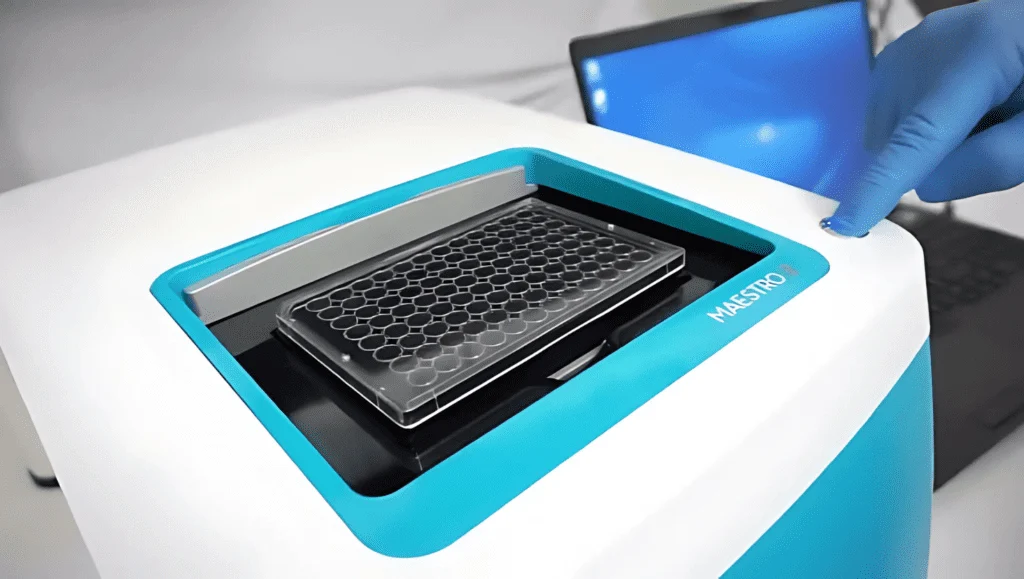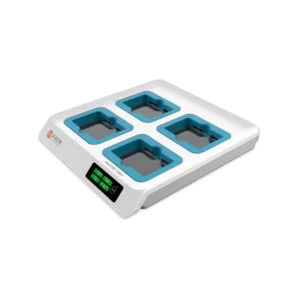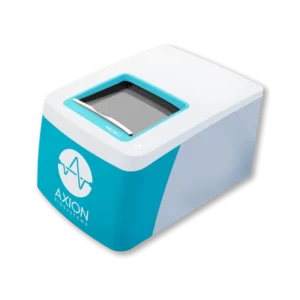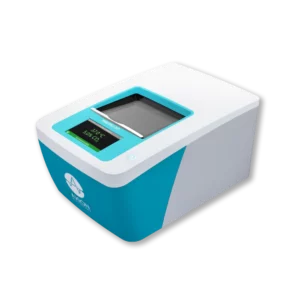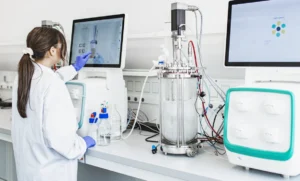In the world of laboratory research, an impedance analyzer is an indispensable tool, providing real-time, label-free measurements of cell behavior. Whether your work focuses on oncology research, drug discovery, or cell proliferation studies, selecting the right impedance analyzer can dramatically influence your research outcomes. Apex Scientific, a trusted supplier in South Africa, is here to guide you through the process of choosing the best equipment for your needs.
This article will explore:
- The advantages of impedance analysis over traditional methods
- The mechanism of impedance technology and its benefits
- Key applications in various research areas
- The models available and their distinct features
- Factors to consider when selecting the ideal impedance analyzer
What Is an Impedance Analyzer?
An impedance analyzer measures electrical impedance across biological samples, such as cell cultures. Unlike traditional methods, impedance analysis allows for continuous, real-time monitoring of cell activity without the need for labels or staining.
Why Choose Impedance Over Traditional Methods?
Traditional cell analysis methods, such as microscopy and biochemical assays, often require complex procedures like staining or sample destruction. An impedance analyzer offers several advantages:
- Real-time monitoring: No repeated sample preparation or manual analysis.
- Non-invasive and label-free: Cells remain viable throughout the process, enabling long-term studies.
- Highly sensitive: Detects subtle changes in cell behavior, such as morphology and adhesion.
- Automation-friendly: Minimizes manual intervention, improving reproducibility.
Key Applications of Impedance Analyzers
Impedance analyzers are invaluable across many research disciplines, including:
1. Drug Discovery & Toxicity Testing
- Monitor cytotoxicity in real-time
- Evaluate drug efficacy and safety prior to clinical trials
- Study dose-response relationships
2. Cancer Research
- Assess cancer cell migration and invasion
- Evaluate the effects of anti-cancer therapies
3. Stem Cell & Regenerative Medicine
- Track differentiation and proliferation
- Study stem cell behavior under various conditions
4. Immuno-oncology & Immunotherapy
- Explore immune cell-mediated killing of target cells
- Analyze immune response to cancer therapies
5. Virology & Infectious Disease Research
- Investigate viral infections in real-time
- Assess antiviral drug efficacy
For more information on the role of impedance analyzers in immuno-oncology, visit Axion BioSystems’ Oncology Research page.
Comparison of Impedance Analyzer Models
Axion BioSystems, a leading supplier of impedance analyzers, provides several models tailored to different research needs. Here’s a look at some options:
Model Features Best Suited For
- Maestro Z Real-time, label-free cell analysis; 96-well format Drug discovery, cancer research, immunotherapy
- Maestro ZHT High-throughput screening, 384-well format Large-scale compound screening, pharmaceutical research
- TrayZ: The Maestro TrayZ can accommodate up to four 96-well plates simultaneously.
For more on these models and how they can enhance your research, explore our impedance analyzer product page.
Choosing the Right Mode
When selecting the best impedance analyzer for your lab, consider these factors:
- Throughput Needs: Do you need a high-throughput system (e.g., 384-well) or a standard format (e.g., 96-well)?
- Research Focus: Are you prioritizing drug screening, immunotherapy, or oncology research?
- Specialized Features: Consider if you need integrated optical stimulation (ideal for neuroscience).
Key Accessories & Options to Consider
To maximize your impedance analyzer’s performance, think about these essential accessories:
- Consumables & Multiwell Plates: Ensure compatibility with your experimental setup.
- Software & Data Analysis Tools: Look for intuitive software for easy data interpretation.
- Environmental Controls: Keep your cells in optimal conditions for accurate results.
Conclusion
An impedance analyzer offers unmatched benefits for real-time, label-free cell analysis. Choosing the right model tailored to your research needs can enhance efficiency, improve data reliability, and provide deeper insights into cell behavior. If you’re in South Africa and need expert guidance on selecting an impedance analyzer, Apex Scientific is here to help.
For more information or to find the best impedance analyzer for your lab, don’t hesitate to contact Apex Scientific.

